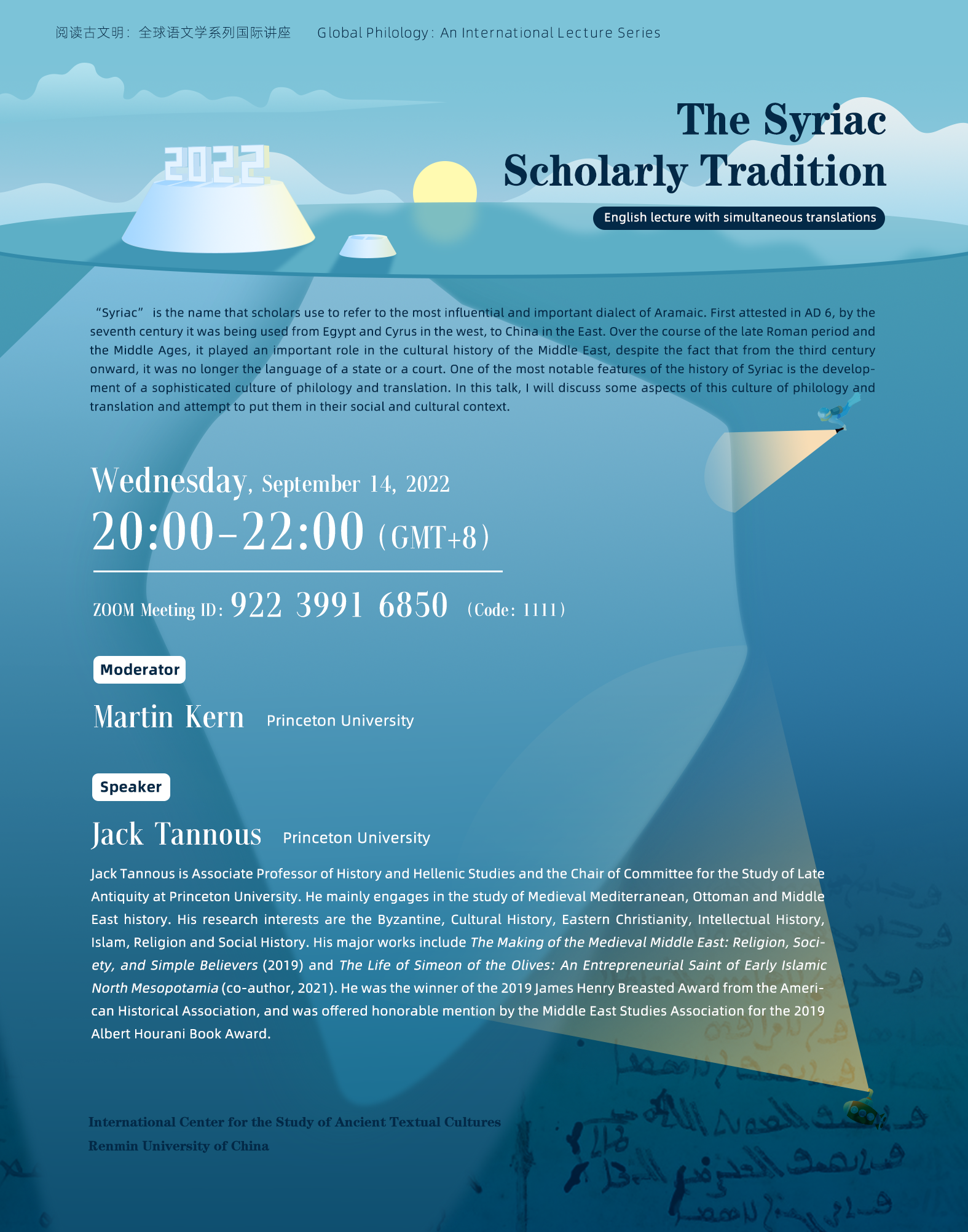[Upcoming]The Syriac Scholarly Tradition
发布时间:2022-05-21Global Philology:An International Lecture Series
The Syriac Scholarly Tradition

Title: The Syriac Scholarly Tradition
Speaker: Jack Tannous, Princeton University
Moderator: Martin Kern, Princeton University
Time: 20:00-22:00 (GMT+8), April 20,2022.
Zoom Meeting ID: 922 3991 6850 (Code: 1111)
Zoom Link:
https://zoom.us/j/92239916850?pwd=MnhBaGxZY1ZpQ3BGMWovRHR1U0h2QT09
About the Speaker:
Jack Tannous is Associate Professor of History and Hellenic Studies and the Chair of Committee for the Study of Late Antiquity at Princeton University. He mainly engages in the study of Medieval Mediterranean, Ottoman and Middle East history. His research interests are the Byzantine, Cultural History, Eastern Christianity, Intellectual History, Islam, Religion and Social History. His major works include The Making of the Medieval Middle East: Religion, Society, and Simple Believers (2019) and The Life of Simeon of the Olives: An Entrepreneurial Saint of Early Islamic North Mesopotamia (co-author, 2021). He was the winner of the 2019 James Henry Breasted Award from the American Historical Association, and was offered honorable mention by the Middle East Studies Association for the 2019 Albert Hourani Book Award.
Lecture Introduction:
“Syriac” is the name that scholars use to refer to the most influential and important dialect of Aramaic. First attested in AD 6, by the seventh century it was being used from Egypt and Cyrus in the west, to China in the East. Over the course of the late Roman period and the Middle Ages, it played an important role in the cultural history of the Middle East, despite the fact that from the third century onward, it was no longer the language of a state or a court. One of the most notable features of the history of Syriac is the development of a sophisticated culture of philology and translation. In this talk, I will discuss some aspects of this culture of philology and translation and attempt to put them in their social and cultural context.